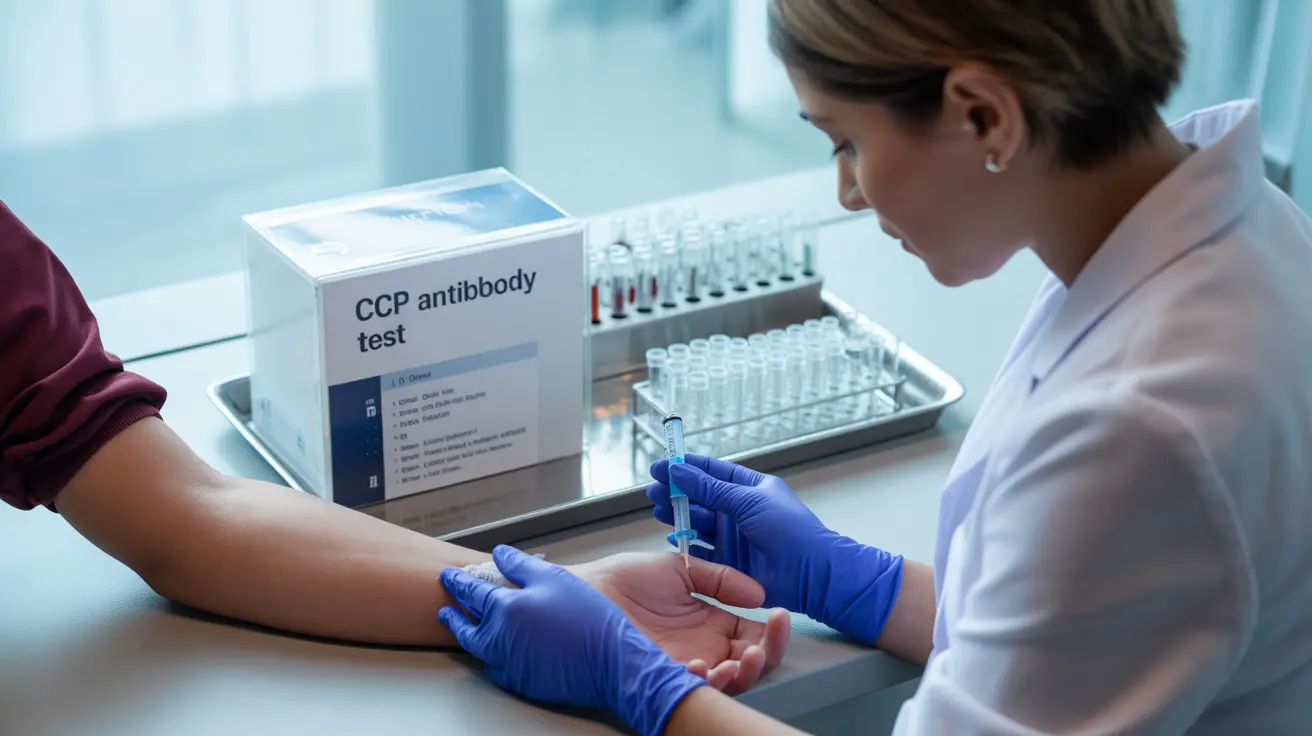A CCP antibody test is a crucial diagnostic tool used by healthcare providers to help identify rheumatoid arthritis (RA), an autoimmune condition that causes joint inflammation and damage. This blood test specifically measures the levels of anti-cyclic citrullinated peptide antibodies, which are proteins produced by the immune system that can indicate the presence of RA.
Understanding the significance of CCP antibody testing can help patients and healthcare providers make more informed decisions about diagnosis and treatment planning. This comprehensive guide explores what the test measures, how it's performed, and what different results may indicate.
What Is a CCP Antibody Test?
The CCP antibody test detects specific antibodies that target citrullinated proteins in the body. These antibodies are often present in the blood years before physical symptoms of rheumatoid arthritis develop, making the test valuable for early diagnosis and intervention.
Healthcare providers typically order this test when patients present with symptoms suggestive of RA, such as joint pain, stiffness, and swelling, particularly if these symptoms affect multiple joints symmetrically.
The Testing Process
The CCP antibody test is a straightforward blood test that requires minimal preparation. A healthcare professional will draw a small blood sample from a vein in your arm, which is then sent to a laboratory for analysis.
Test Preparation
Most patients don't need special preparation for the CCP antibody test. However, it's important to:
- Inform your healthcare provider about any medications you're taking
- Continue taking prescribed medications unless instructed otherwise
- Fast if specifically requested by your healthcare provider
- Drink plenty of water before the test
Understanding Test Results
CCP antibody test results are typically reported as positive or negative, often with specific numerical values indicating antibody levels.
Positive Results
A positive CCP antibody test result strongly suggests the presence of rheumatoid arthritis. Higher levels of these antibodies often correlate with:
- More severe disease progression
- Increased likelihood of joint damage
- Higher probability of requiring aggressive treatment
- Greater risk of extra-articular manifestations
Negative Results
A negative result doesn't completely rule out RA, as some patients with the condition may not produce these antibodies. Healthcare providers often consider other factors and tests when making a diagnosis.
Diagnostic Accuracy and Comparison
The CCP antibody test is known for its high specificity in diagnosing RA. When used in combination with other diagnostic tools, particularly the rheumatoid factor (RF) test, it provides valuable information for confirming an RA diagnosis and predicting disease severity.
Frequently Asked Questions
What does a positive CCP antibody test mean for diagnosing rheumatoid arthritis? A positive CCP antibody test strongly indicates the presence of rheumatoid arthritis. It's particularly significant because these antibodies can appear years before physical symptoms develop, allowing for earlier intervention and treatment.
How accurate is the CCP antibody test compared to the rheumatoid factor test for rheumatoid arthritis? The CCP antibody test is generally more specific for RA than the RF test. While both tests are valuable, CCP testing has shown higher specificity (95-98%) compared to RF testing (80-85%), making it a more reliable indicator for RA diagnosis.
Can I have rheumatoid arthritis if my CCP antibody test result is negative? Yes, it's possible to have RA with a negative CCP antibody test. Approximately 20-30% of people with RA are "seronegative," meaning they don't have detectable CCP antibodies but may still have the condition based on other clinical findings.
How is the CCP antibody test performed and do I need to prepare for it? The test is a simple blood draw that requires minimal preparation. No fasting is typically necessary, and you can continue your regular medications unless specifically instructed otherwise by your healthcare provider.
What do different levels of CCP antibodies indicate about the severity of rheumatoid arthritis? Higher levels of CCP antibodies often correlate with more severe disease progression, increased risk of joint damage, and a higher likelihood of requiring aggressive treatment. The specific levels can help healthcare providers predict disease course and plan appropriate treatment strategies.




